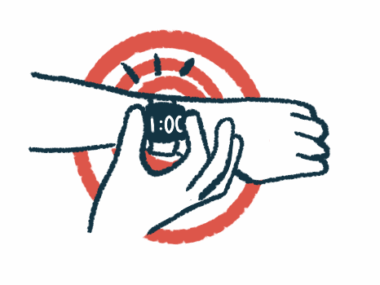‘Someone like them’: Black patients meet as support group
Topics include managing symptoms, family support, and care
Written by |

Members of the Support Group for Black Patients with Parkinson’s Disease took part in the Parkinson Council’s Walk to Stamp Out Parkinson’s event in November and raised more than $3,400, helping the Council to come within 70% of its $400,000 fundraising goal.
The support group, which was launched in February and meets at Pennsylvania Hospital, hopes to continue to gather to take part in activities. It was formed to encourage friendships and provide a supportive space for people in an underserved community to connect and share their experiences about the disease. The Council’s walk is designed to raise awareness for Parkinson’s and funds to support local families affected by the condition.
Black people often receive a Parkinson’s disease diagnosis later than white people, studies indicate. This delay may occur because patients tend to seek medical help only when their symptoms, like tremors or muscle stiffness, become more noticeable.
A ‘sense of community’
“Many of the patients say they’ve never met someone like them with Parkinson’s,” Amanda Cruz, who leads the meetings, said in a Penn Medicine university news release. “This group builds up our patients’ support systems and creates a sense of community.”
“Most people think these symptoms have to do with aging and don’t realize they’re neurological,” said Cruz, a clinical research coordinator in neurology.
The meeting occurs every month and participants can join in person or virtually from their homes. Topics can include managing symptoms, family support, and tasks regarding caring. Patients can also offer suggestions for future meetings, such as discussions with different specialists. These may include a neurologist, to understand the mechanisms of the disease and how it impacts the brain and its functions, or a dietitian, to assess the role of diet and the type of foods that could benefit people with Parkinson’s.
Cruz said she is encouraged when she sees group members interacting, “laughing and joking with each other.” She acknowledges some members may still be in denial about their diagnosis or frightened by it.
Patients have formed bonds with each other and connect between meetings, either through emails or phone calls.
“If someone calls me and tells me they’re having a rough time, I give them advice and tell them to think of a peaceful place. I think of being on a beach,” said C.J., one of the support group patients.
Cruz has won a grant from the CAREs program, which provides funding for staff and their community initiatives across the regions Penn Medicine serves, both at the national and international level. The grant will help support the group’s activities, and will enable food to be served at the meetings and contribute to ridesharing services so patients who aren’t able to drive themselves can attend in person.
“This is a group that needed to be had,” Cruz said. “I, myself, am a minority, so it was important to me to create a group for others where they can feel supported by people who can relate to them.”



